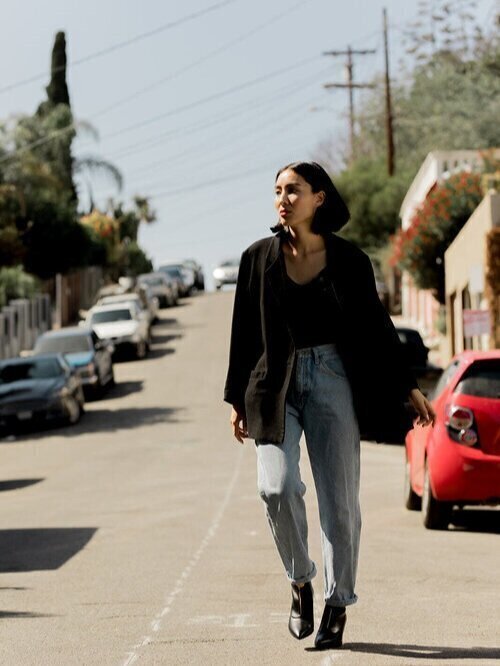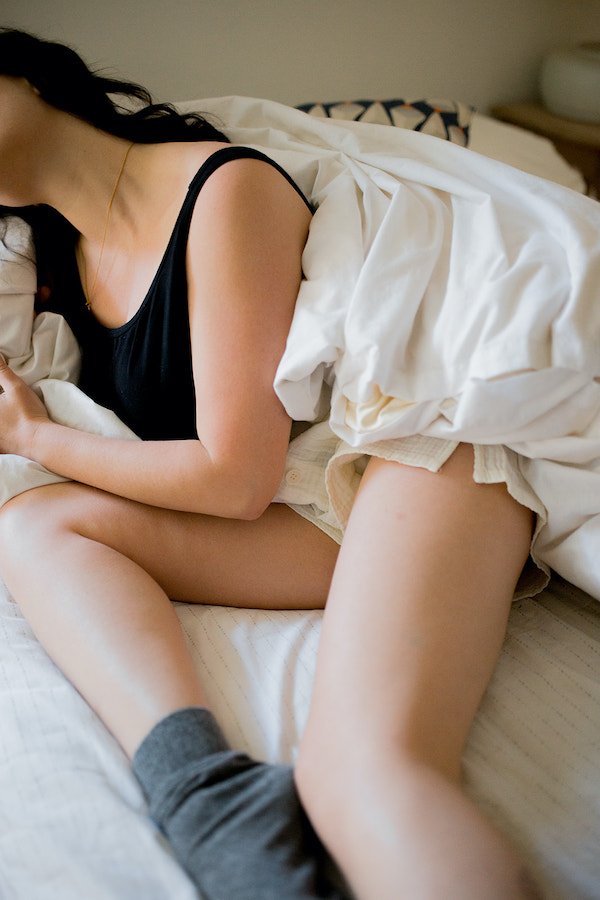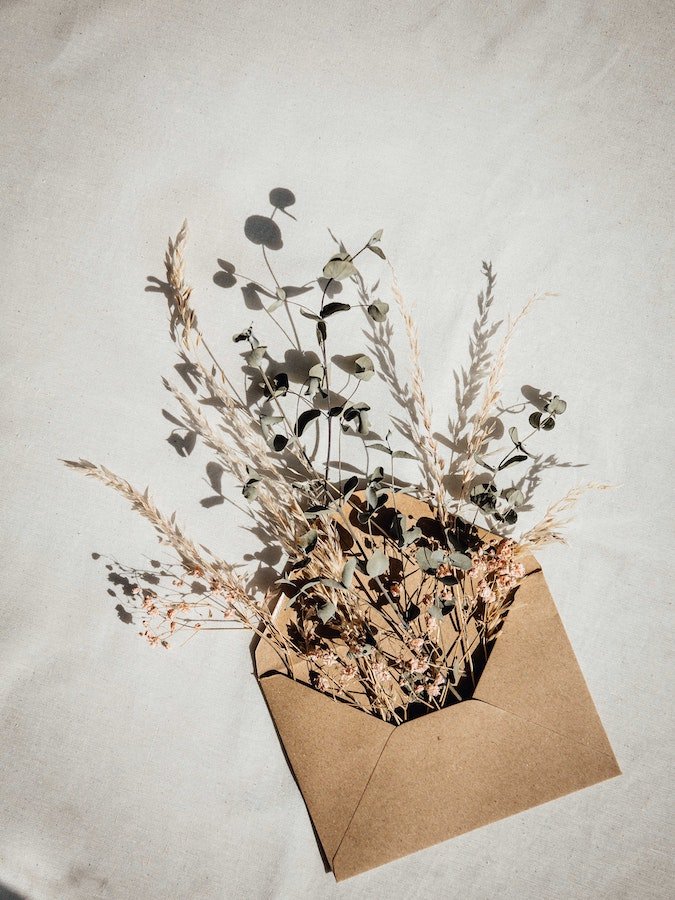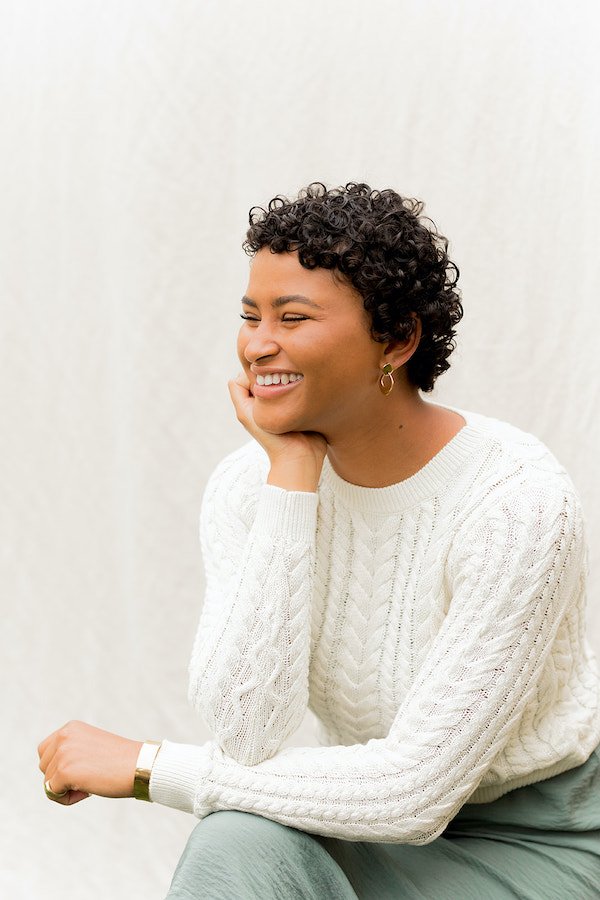
Reader Essay: Thirty, Flirty, And Fallopian-Free
This essay was reader-submitted for our Reader Essay Series on themes of motherhood, mental health, and personal transformation.
I can’t remember the moment when I realized I didn’t want to be a mother, just that the knowledge seems to have lived in me since before I had consciousness.
I do remember how this knowledge spurred me, at 30, to sign a consent form at my doctor’s office, drive myself to the hospital at dawn, and joke with the nurses and the anesthesiologist as they prodded me with needles. I remember giggling as I was wheeled into a searing white room, and I remember fading as I was plopped on a surprisingly tiny operating table where the medical team would soon pump my abdomen full of air through a small incision in my belly button and laparoscopically remove my fallopian tubes.
“My earliest memory of my innate aversion to motherhood occurred when I was only a child myself, perhaps eight or nine.”
My earliest memory of my innate aversion to motherhood occurred when I was only a child myself, perhaps eight or nine. It was a typical family gathering. Men sprawled in the living room; women chatting as they perpetually cooked, served, cleaned, and refilled; groupings of kids scattered about the basement. I ventured out from the kids’ play haven, where I was making beaded bracelets with my cousins in search of a snack, when an aunt approached me with a request: that I “keep an eye” on her toddler while she socialized with people her own age, for a change.
I dutifully masked my dread and agreed. “Keeping an eye” sounded like a relatively low-maintenance job.
Regrets.
The toddler, away from his mother’s authoritative eye and under my completely uninterested one, proceeded to run around at top speed, bump into things (and people) and scream. He finally stopped as I chased him halfway up the stairs, worried he’d fall and I’d get blamed, only to wet his pants and start bawling loudly.
I looked at him, blinked, and left him in the middle of the stairwell.
“Your kid peed,” I casually remarked to my aunt, who immediately jumped up in a panic. “He’s on the stairs.”
““How selfish of you,” she seethed. “That is your duty.”
I didn’t bother to stay for any reason and instead shimmied around the puddle of pee back into the basement to my cousins.
About a year later, I confided in my grandmother that I didn’t want to have children, and she scolded me.
“How selfish of you,” she seethed. “That is your duty. You have to make children so I can be a great grandmother. You’re selfish not to want to do that for me.”
By fifteen, my grandmother began calling me “arees” or “bride” in Arabic. A traditionally minded immigrant from the Middle East, she reminded me that she was already married and pregnant by my age.
“Meanwhile, my mother was in denial. “You’ll see that you’re going to change your mind. ”
My friends, constantly squealing that they “couldn’t wait to get married and make babies” with whatever teenage boy they were dating at the time, thought I was weird. Meanwhile, my mother was in denial. “You’ll see that you’re going to change your mind. You’re so young; you’ll find the right person and want to have kids with them.” It wasn’t enough that my two younger siblings seemed committed to going the traditional route, unquestioningly anticipating the same path of marriage and children that nearly every relative had taken. Perhaps my mother’s fear lay in the potential that I would wind up like the rogue bachelor uncle or old-maid aunt that the older ladies clicked their tongues at disapprovingly in private.
I learned to navigate my recalcitrance with excuses. “I don’t want to have children when the future seems so uncertain,” I’d say. “I’d rather focus on my career and not think about that now. Maybe I’ll adopt one day, if it ever feels right.”
*
Years have gone by in this manner, and perhaps that’s why I initially kept my sterilization a secret. I was tired of questions, of forming halfhearted explanations, of the judgment, of hearing that the “right person” would change my mind. I told a few close friends (a couple of whom, I heard through whispers, had expressed strong opinions about that decision behind my back) and went to the hospital alone. I would have returned home alone too, if not for a very beloved and supportive cousin who insisted on picking me up.
But I couldn’t keep quiet for long. Getting sterilized was unexpectedly impactful. It wasn’t just that I could no longer have kids; my entire identity as a woman with a uterus was no longer tied to motherhood. It wasn’t an option; it wasn’t a part of me in any way.
“In a way, it felt like the procedure had allowed me to become myself. ”
I was free.
My joy at this thought was wild and uncontained, and I showed off my stitches and later scars to a few trusted friends like a child showing off a new toy. In a way, it felt like the procedure had allowed me to become myself.
The newfound security I felt in my identity compelled me to reframe how I responded to people, switching my tone and rhetoric from apologetic explanation to confidence, satisfaction, and conviction.
In one particular instance, I sat amongst a group of female family members (many with children), and when faced with the inevitable question, “Why don’t you want kids?” I simply responded, “Well, why DID you want kids?”
No one could answer. No one knew why they had their own kids; what specific, concrete, clear reasons they had for wanting to be mothers. There was no way to explain exactly how the experience of motherhood was inherently better than the experience of a life without kids.
*
Perhaps the most rewarding effect of my vocality on the subject is watching friends– now exposed to more information, more perspective, and more peers opting out of parenthood– begin to question their own previously unquestionable commitment to birthing offspring.
I went from being the token single childless friend to the sage—the one who knew, before everyone else, that motherhood was not the be all, end all; that the number of people who may regret not having children was probably smaller than the number who, perhaps, quietly, did regret it on some level.
““You’re a very “stand apart to stand together” kind of girl, aren’t you?” she asked. ”
Over a year after my surgery, I made an appointment with an astrologer to read my birth chart. In the reading, she lingered on some interesting placements: my North Node and Midheaven hang out together in the sign of Aquarius.
“You’re a very “stand apart to stand together” kind of girl, aren’t you?” she asked.
The truth is, yes. Making a point to advocate for a childless life and being open about sterilization has drawn others to me. Those who feel pressured or uncertain or feel alone in their thoughts about parenthood find their own power in mine. And at a time when our reproductive rights are retrograding, what more powerful act is there than exposing this reality and normalizing sterilization as an option for those who don’t want to be parents? And even more importantly, normalizing the choice not to procreate and positioning it simply as an option next to the choice people make TO procreate?
I hope my personal transformation is a tiny push toward a societal one. I hope it contributes to decentering motherhood in women’s identities. I hope it helps alleviate the dread of growing up and facing the predetermined life that has imprisoned women for centuries all over the globe. I hope people see me travel, grow, engage in my community, engage in social issues and live a happy, fulfilled, purposeful life—not despite being childless, but because I didn’t have children. I hope through this, the strength of those desiring freedom will overpower the strength of those seeking to deprive us of it.
Amber Ajluni is a community college English instructor and freelance writer/editor based in Southern California. She is currently exploring her voice in both fiction and non-fiction, focusing on themes of grief, identity, and challenging commonly-held values.




